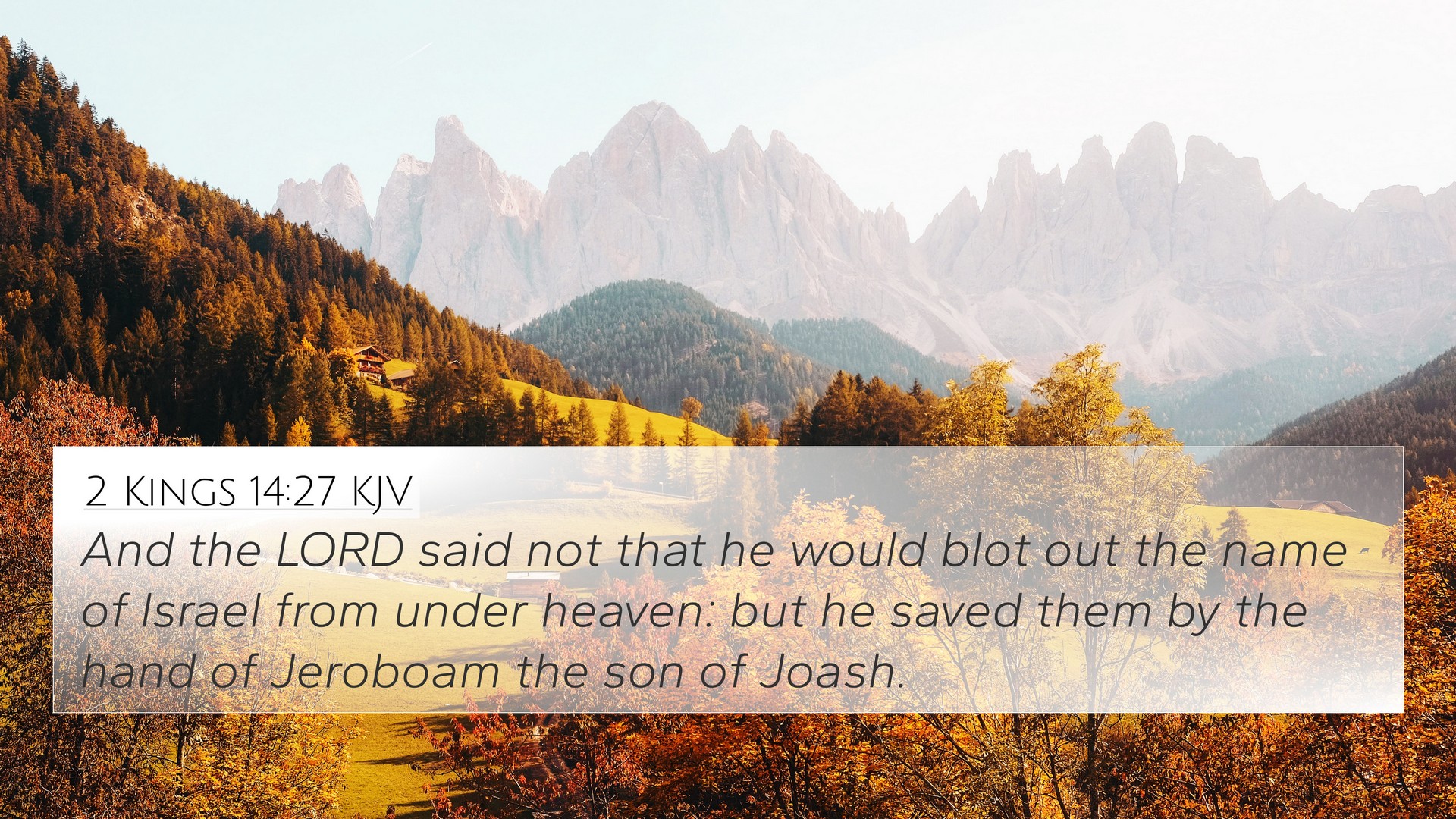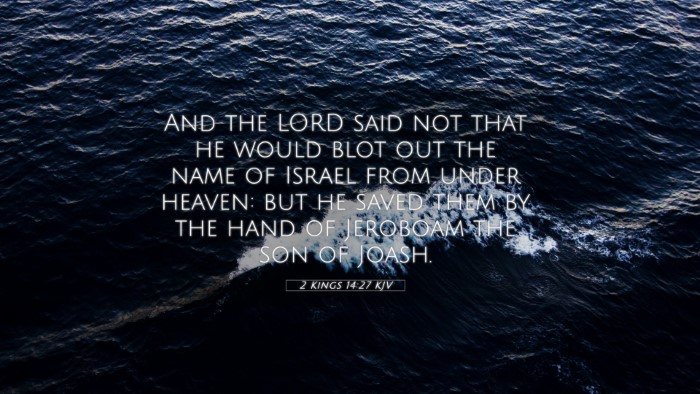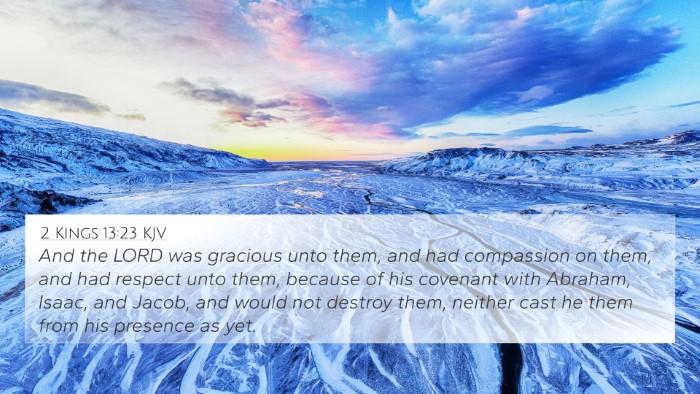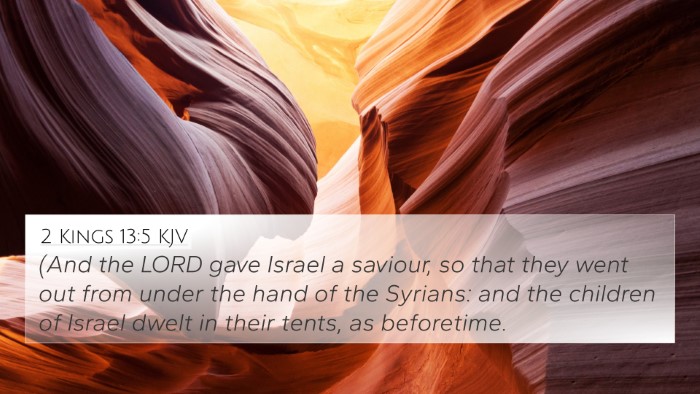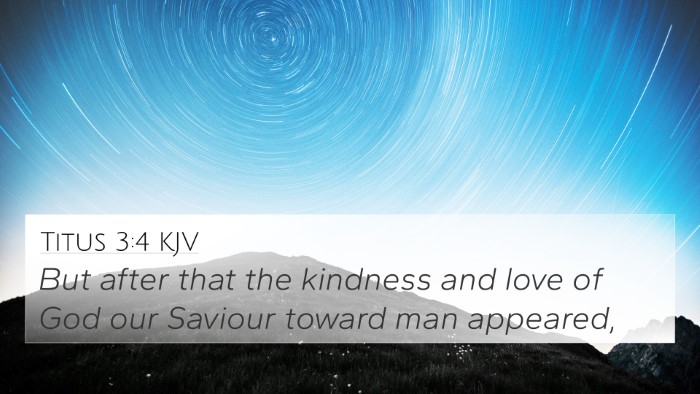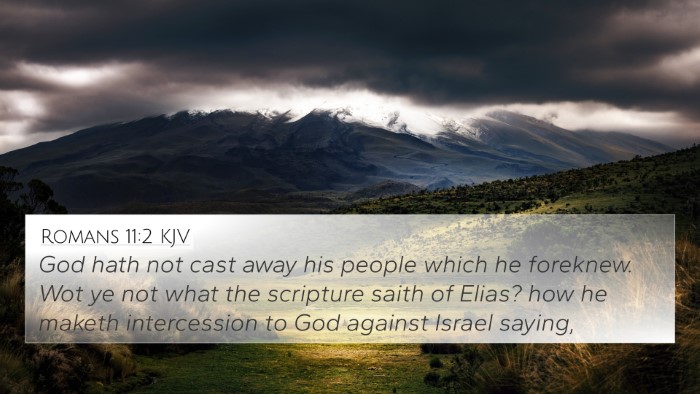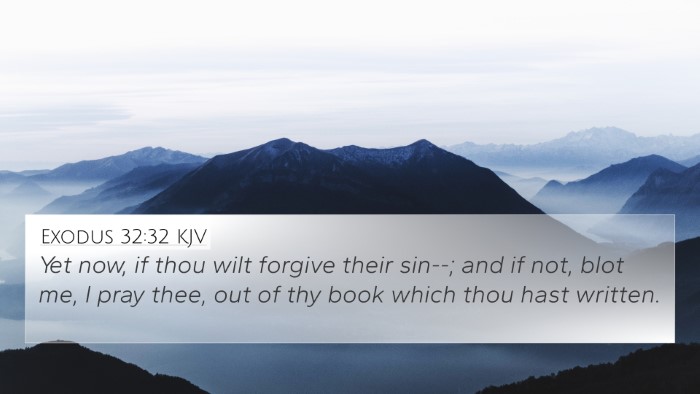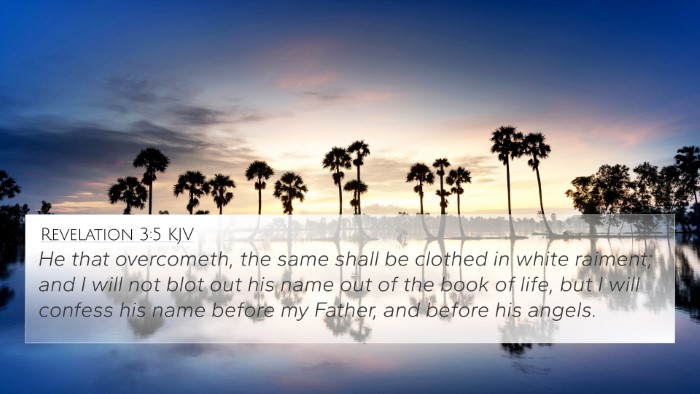Understanding 2 Kings 14:27
Bible Verse: 2 Kings 14:27
“And the Lord said not that He would blot out the name of Israel from under heaven: but He saved them by the hand of Jeroboam the son of Joash.”
Summary of Interpretation: This verse encapsulates a moment of divine mercy regarding the nation of Israel. Despite Israel's continuous disobedience and wickedness, God showed His compassion by preserving them, choosing to save them even through a king like Jeroboam II, who came from a lineage associated with transgressions. The preservation underscores God's sovereignty and faithfulness to His covenant promises.
Key Insights from Commentaries
-
Matthew Henry:
Henry emphasizes that God's eventual mercy demonstrates His enduring commitment to His people. Even though Israel deserved judgment, God's name and promises will not be obliterated. He observes how God often uses imperfect vessels to accomplish divine plans.
-
Albert Barnes:
Barnes explains that the mention of Jeroboam's name illustrates both a symbol of sin and a tool of divine intervention. He highlights that Jeroboam II temporarily restored economic prosperity but fell short of true spiritual reform, pointing out the complexity of divine sovereignty in human affairs.
-
Adam Clarke:
Clarke dives into the historical context, noting Israel's decline and the expectation of its demise. Yet, God's choice to preserve Israel reflects His unchanging nature and the hope of redemption for His people. He notes that God’s will remains active despite human failures.
Connection to Other Scriptures
This verse is part of a broader narrative in the Old Testament that speaks to the themes of divine mercy, judgment, and covenant faithfulness. The connections between Bible verses help enrich our understanding of God’s nature and His relationship with humanity. Below are relevant cross-references that illustrate these themes:
- Deuteronomy 9:14: God’s intention to wipe out disobedient people but the reminder of His covenant promise.
- 2 Samuel 7:26-29: The eternal nature of God’s promise to David that resonates in His preservation of Israel.
- Isaiah 54:7-10: Expressing God’s everlasting love despite transgressions.
- Hosea 1:10: The promise that Israel, despite being punished, will be increased and ultimately restored.
- Ezekiel 36:22-24: God's intent to restore His people for His own name's sake.
- Romans 11:1-2: Paul affirms that God has not rejected His people; His covenant remains.
- John 3:16: The universal nature of God's love, connecting to His heart for His chosen nation.
- James 2:13: God’s mercy triumphs over judgment, mirroring the context of Israel's preservation.
- Hebrews 8:12: God's promise of forgiveness and remembrance of sin no more enhances the understanding of divine grace.
- 1 Peter 3:9: Relating to God's patience and desire for all to repent, reminiscent of His dealings with Israel.
Thematic Connections and Synopsis
The thematic connections in this verse highlight God’s nature as a redeemer who preserves His people despite their failures. This resonates strongly with the overarching narratives found throughout the Bible, illustrating God’s sovereignty, mercy, and the idea of restoration for His people. The connections between Bible verses provide critical insights for worshippers seeking to understand how God's promises and actions interweave through history.
As scholars and believers engage in cross-referencing biblical texts, they can better grasp the intricate relationships of God's dealings with humanity. This method unveils the inter-Biblical dialogue that not only enriches individual understanding but also forms a comprehensive overview of divine principles that govern the narrative of Scripture.
Tools for Bible Cross-Referencing
To explore these themes and connections effectively, utilizing various tools for bible cross-referencing, such as concordances, software, or dedicated study guides, can enhance your understanding and interpretation of Scripture.
Conclusion
In conclusion, 2 Kings 14:27 serves as a profound reminder of God’s mercy and faithfulness. Through this verse, alongside its bible verse cross-references, we are encouraged to reflect on how mercy triumphs in the face of judgment, a theme that resonates profoundly throughout the entire Biblical narrative. Engaging in comparative Bible verse analysis significantly deepens our comprehension and can lead to transformative insights for both individual faith and community teachings.
